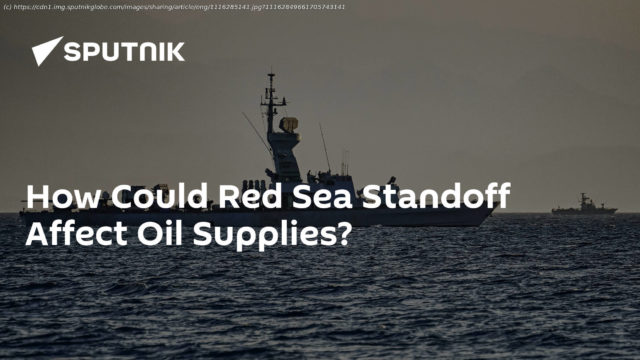Ongoing Houthi attacks on Western trade vessels passing through the Red Sea have already prompted a spate of tankers to divert their course away from the area. Will the trend continue? Sputnik explores.
Yemen’s Houthis vowed to attack any ships associated with Israel until the Jewish state halts its military actions in the Gaza Strip in November.This prodded US Secretary of Defense Lloyd Austin to announce the creation of a multinational operation to secure navigation in the Red Sea. Earlier this month, US and UK forces launched major strikes against Houthi positions to degrade the fighters’ ability to target commercial vessels. The standoff, however, shows no sign of abating.Why is Red Sea So Crucial for Global Oil Deliveries?The Suez Canal and the Bab el-Mandeb Strait at either end of the sea are major routes for energy shipping. Tankers coming from Persian Gulf countries, such as Iraq and Saudi Arabia, travel through the Red Sea to reach Europe and beyond.Between 7 and 8 million barrels per day (bpd) of crude oil and petroleum products were previously transported via the Red Sea. Up to 12% of global crude exports, and between 14% and 15% of exports of oil products, such as gasoline and diesel, typically travel through the Red Sea, according to data provider Kpler.






